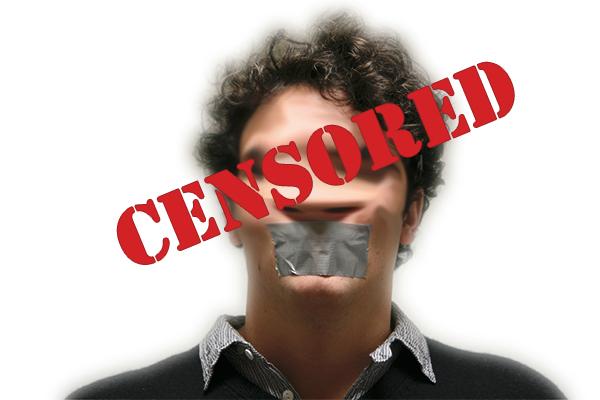
Censorship plays a crucial role in society; however, recently, censorship may seem to be going a bit too far. Classic novels are reworked to be more politically correct — songs by popular rock bands are being banned from airwaves and artwork is being removed from exhibits. This begs the question: Has society gone too far?
“Adventures of Huckleberry Finn” by Mark Twain has been a recent victim of the censorship epidemic. Words such as “Injun” and “nigger” have been removed from the novel and replaced with “slave” to appear more politically correct. The thought behind this change is to protect the students who are reading the book, but instead it may be depriving them of the full impact of the classic story.
English Professor Scott Henkel, who teaches a Banned Books class at Binghamton University, sees both sides of the argument.
“Interestingly, the book is in the public domain, which means that under U.S. copyright law, any of us have the right to take the book and make derivative versions (meaning to alter and republish the book). This last is a point of the debate that is being missed,” he said. “‘Huck Finn’ is offensive, but the book gives us the opportunity to face that offense, study it and use what we learn to challenge those injustices.”
Thomas Glave, an English professor at Binghamton University, recently commented on this change in the article “Obscuring the Past” in The New York Times.
“In 2010 (and always), we must be brave and honest enough to face the hard facts: replacing the word ‘nigger’ with the word ‘slave’ in Twain’s masterpiece ‘Huckleberry Finn’ will neither erase nor vanquish the ugly history out of which the novel and the offensive word emerged,” Glave said.
But it’s not just classic American literature that is being revamped — Canada has recently decided to place a ban on the popular Dire Straits song from the 80s, “Money for Nothing.” A complaint from one listener after the song’s 26 years of existence caused the ban.
Canada claims the song is homophobic because it uses the word “faggot” to describe the rock star in the song. While it is true the term “faggot” is mentioned in the song, censorship groups and rock fans argue that it is being interpreted completely out of context.
The song is about a disgruntled man who complains about the success of a musician. The overall message of the song is that musicians are spoiled and receive a lot of fame and fortune without any hard work. “Faggot” is used in the third stanza of the song and could be interpreted as homophobic at a quick glance, but upon further inspection of the song, it is just a term to denote the bigot’s frustration with his laborious life, while musicians get to live in the lap of luxury.
Geoff Hetherington, a junior majoring in computer science, disagrees with Canada’s decision.
“I wouldn’t say it’s right to ban the song,” he said. “I don’t think it’s homophobic, either; there’s only a small part of the song that has upset people. I don’t think the whole piece together could be called homophobic.”
Regardless of this, Canada is still sticking to the ban.
Even the art world has succumbed to the pressure of political correctness.
Wayne Clough, the secretary of the Smithsonian Institution, made the decision in early January to censor an exhibit at the Smithsonian’s National Portrait Gallery. Republican congressional leaders watched the video and complained it was anti-Christian because ants were crawling on the crucifix. This prompted Clough to remove the piece from the exhibit, “Hide/Seek: Difference and Desire in American Portraiture.”
This video could be viewed as controversial and challenging to the Christian faiths, but there were several other racy pieces, as well. The exhibit included naked brothers kissing, genitalia and Ellen DeGeneres grabbing her breasts. Any of these pieces could be considered controversial and anti-religious as well, but they were not banned from the exhibit.
Art is about freedom of expression, yet with censorship, artists can be hindered in their creative process.
Though some may argue that censorship is necessary in certain instances, when censorship begins to hinder the freedom of expression, modify classics to be politically correct and ban songs that have been around for decades because of slang, then it may be going too far. Censorship is meant to protect society, not hinder the expression of its citizens.


